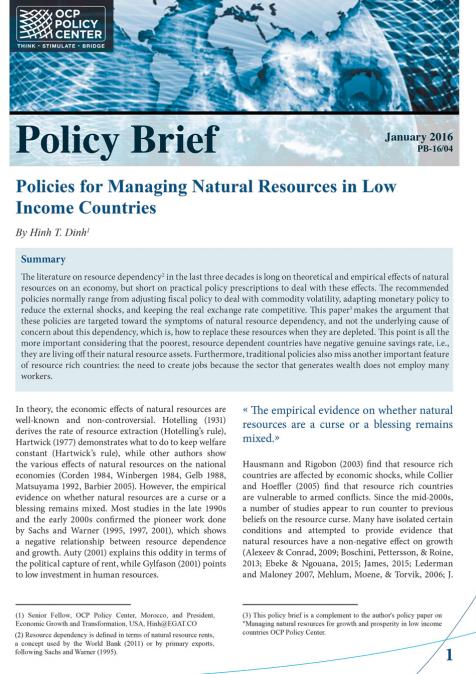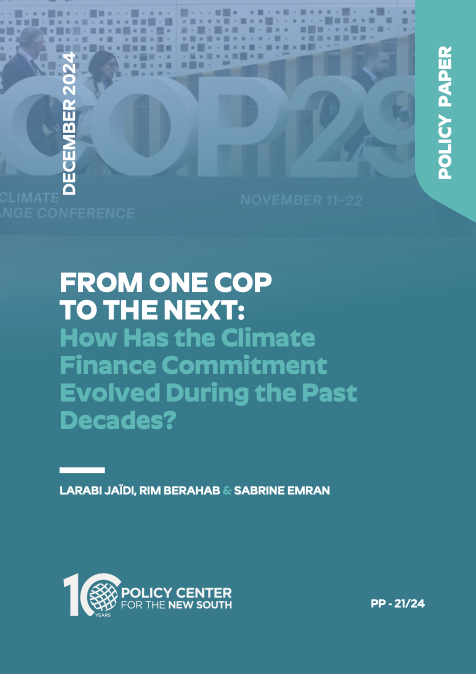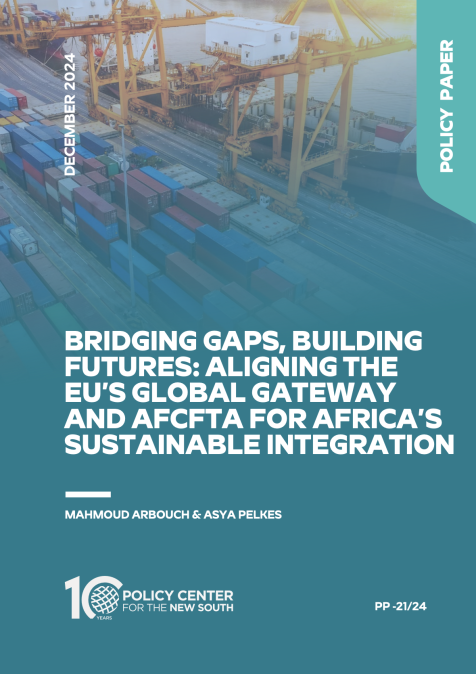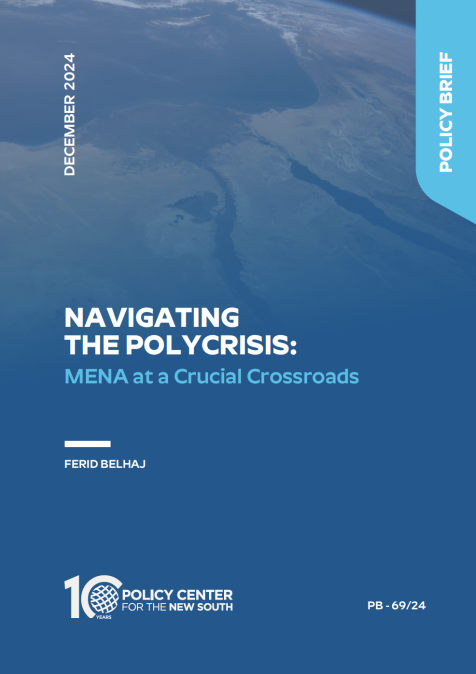Publications /
Policy Brief
The literature on resource dependency2 in the last three decades is long on theoretical and empirical effects of natural resources on an economy, but short on practical policy prescriptions to deal with these effects. The recommended policies normally range from adjusting fiscal policy to deal with commodity volatility, adapting monetary policy to reduce the external shocks, and keeping the real exchange rate competitive. This paper3 makes the argument that these policies are targeted toward the symptoms of natural resource dependency, and not the underlying cause of concern about this dependency, which is, how to replace these resources when they are depleted. This point is all the more important considering that the poorest, resource dependent countries have negative genuine savings rate, i.e., they are living off their natural resource assets. Furthermore, traditional policies also miss another important feature of resource rich countries: the need to create jobs because the sector that generates wealth does not employ many workers.









